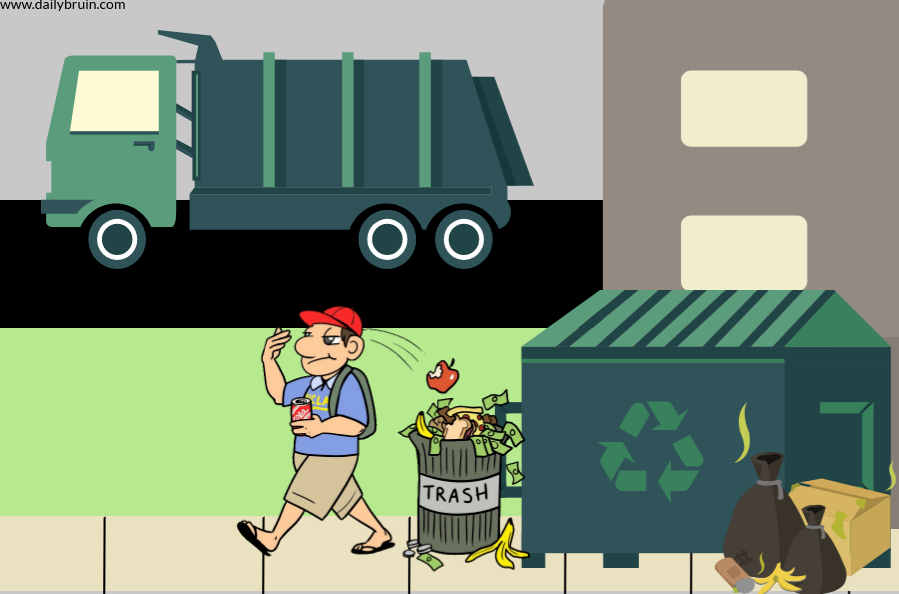Administrators should emphasize composting in school
June 11, 2019
We’ve all heard the mantra “reduce, reuse, recycle,” but what about composting? With pollution and rising temperatures rapidly destroying our planet, the “three R’s” are simply not enough.
A 2018 study by the National Resources Defence Council found that nearly 40 percent of all food in America is wasted, which causes an increase in greenhouse gas emissions and wastes outrageous amounts of resources. Every individual has the ability to impact this dramatic statistic, including students at Whitman. However, in an informal Black & White survey of 35 Whitman students, only 65 percent said they recycle and compost every time they’re given the chance. This leaves 35 percent of the Whitman community throwing paper into trash cans and disregarding the compost bins that the student-run Green Earth Organization recently added to the cafeteria. In order to curb food waste and foster a culture of environmental awareness, administrators should emphasize composting initiatives.
When food waste ends up in landfills, the scraps release inordinate amounts of methane, a greenhouse gas 84 times more potent than carbon dioxide, according to the Environmental Defense Fund. The nutrients in food scraps never return to the soil; instead, the wasted food decomposes and produces methane.
Composting can also give us organic fertilizer, which helps with ocean restoration and reforestation since the organic material promotes plant growth. Though chemical fertilizers are more popular due to their ability to quickly increase plant growth, they decrease the fertility of soil, strengthen harmful pesticides and pollute nearby bodies of water.
Promoting composting initiatives would also help create a culture of environmental awareness at Whitman and more students would know about the pressing environmental issues surrounding food waste. In addition, if students create an environmentally friendly habits, they’ll be more likely to apply their knowledge at home too and create a bigger difference.
Opponents argue that since student activists have already spearheaded a composting initiative, adult intervention is unnecessary; however, administrators advocating composting would amplify the students’ actions. Administrators are the leaders of the school, so they can get their voices to a larger group of students.
We’re running out of time to save the environment, but we haven’t run out quite yet. Composting is an easy and effective way to help protect the planet, so we need to capitalize on the opportunity to save our planet.






